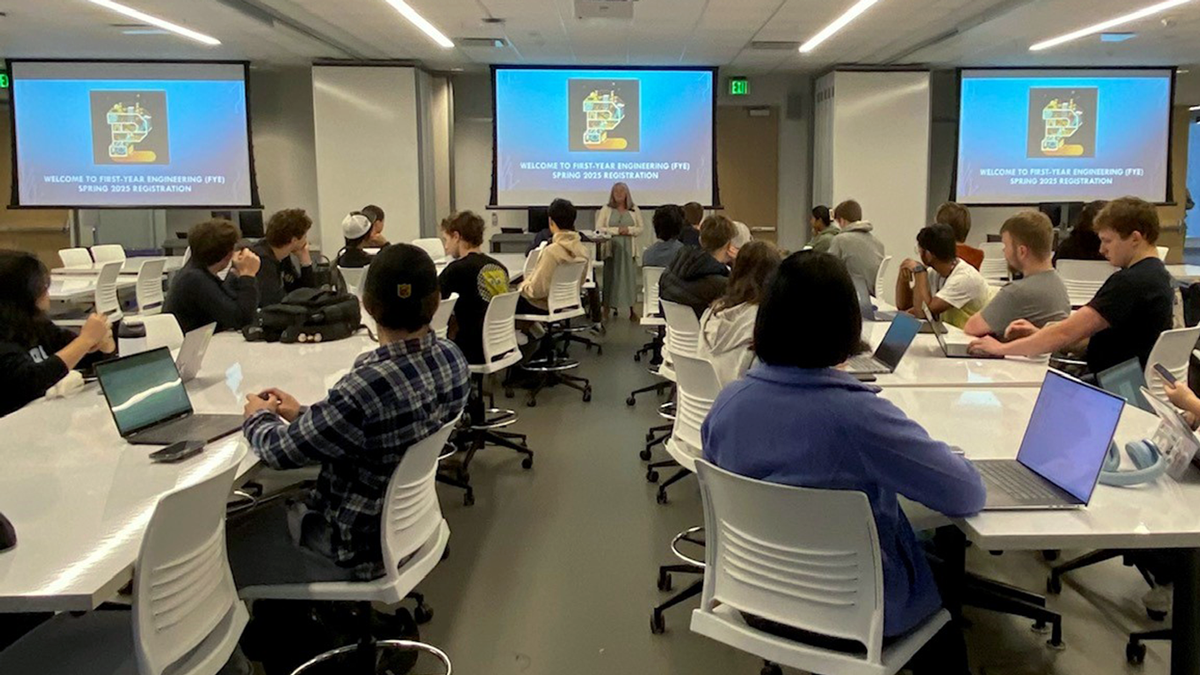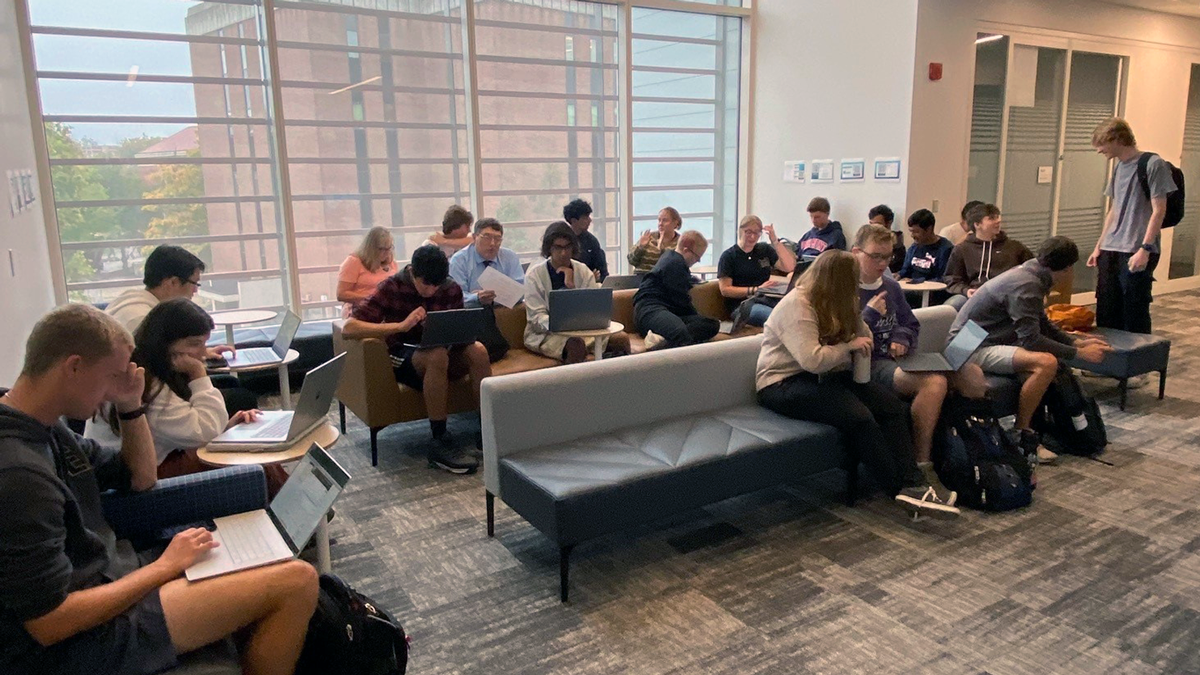Some breathing room for Purdue First-Year Engineering after banner enrollment
| Event Date: | February 10, 2025 |
|---|
It’s that time of the year at the Purdue College of Engineering when first-year students select their engineering discipline. They’ve made it through their first semester and had the chance to explore options with the help of the First-Year Engineering (FYE) program and its advising team.
Last fall when these students arrived, they comprised the largest Purdue FYE cohort to date, due to both the extraordinary demand for a Purdue engineering experience and a larger than anticipated yield rate among admitted students. At the end of the admissions cycle, approximately 900 more students were admitted into FYE than in previous years, bringing the total class size to more than 3,400.
The challenges started in May 2024, when problems with the rollout of the “new” FAFSA (Free Application for Federal Student Aid) process bumped back the deadline for students to accept their admission offer. By mid-June, the final admission numbers were available: a 25% increase over what was expected.
Incorporating a 25% increase in students into the program would seem like a Herculean task, but the FYE Advising office had an established playbook to follow and began the process of ramping up operations to meet the challenge. FYE advisors immediately engaged this record-setting cohort of students to schedule out their first semester. The orientation portion of the task had been automated years before through online modules students must complete once admitted into the program. But some things can’t be automated, such as the customary 45-minute, one-on-one meeting in which advisors get to know the student, determine their interests, talk through their plan of study, find out what credits they are bringing into the program as well as how the credits will affect the student’s overall plan.
“Our advisors care very deeply about each student and want to make sure they are doing a good job in helping them and making them feel welcome,” said Curt Oechsle, director of FYE Advising. “These initial advising meetings are a student’s first opportunity to talk to someone in their academic area of choice. The connection is critical to set students on the right path for a successful year.”

With 900 more students to advise, advisor capacity was stretched thin. Along with the dozen FYE Advisors working long hours to meet the scheduling challenges, additional academic advisors from around the College were recruited to pitch in. As the fall semester got underway, Oechsle made the decision to temporarily switch from individual to group advising to accommodate spring term scheduling needs. So, for a month last fall, most students met at the advising offices in groups, with these sessions conducted twice a day.
“It was ‘all hands on deck’ for a while,” Oechsle said. “We needed to figure out how to group students to make the advising sessions most effective, then leave time in our day for individual sessions with students who had specific scheduling concerns.” Challenges in scheduling came from beyond the College, as a first-year course schedule includes an engineering class or two along with courses in math, science, and communications. Established systems in place between the college of engineering, Registrar’s Office and the individual departments ensured students had access to the courses needed to move toward their intended major.
 As the largest FYE cohort in Purdue’s history moves into their chosen engineering disciplines, the FYE program stands proud of its ability to rise to the occasion. The success of this cohort is a testament to the resilience and hard work of both the students and the FYE Advising team. “The experience has not only strengthened the FYE program but reinforced its commitment to providing a world-class engineering education, no matter the challenges,” Oechsle said. With new strategies in place—including a deferment option when admitting students to FYE in an effort to prevent system overload—FYE is well-prepared to welcome future cohorts, ensuring that every student has the opportunity to thrive in their academic journey.
As the largest FYE cohort in Purdue’s history moves into their chosen engineering disciplines, the FYE program stands proud of its ability to rise to the occasion. The success of this cohort is a testament to the resilience and hard work of both the students and the FYE Advising team. “The experience has not only strengthened the FYE program but reinforced its commitment to providing a world-class engineering education, no matter the challenges,” Oechsle said. With new strategies in place—including a deferment option when admitting students to FYE in an effort to prevent system overload—FYE is well-prepared to welcome future cohorts, ensuring that every student has the opportunity to thrive in their academic journey.





